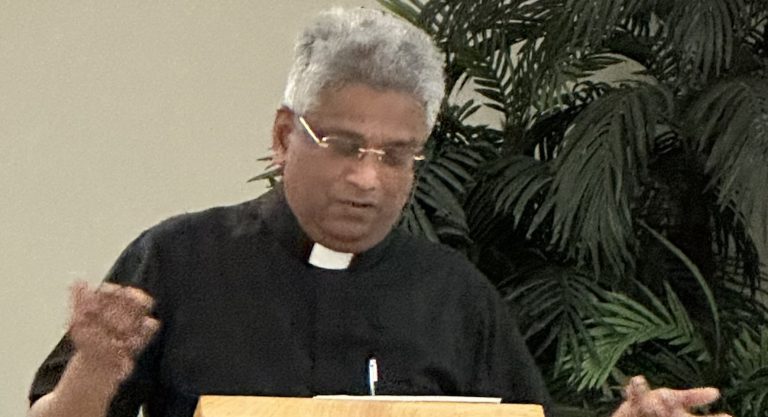FOURTH SUNDAY OF LENT
First Reading • Joshua 5:9a, 10-12
Psalm • Psalm 34:2-3, 4-5, 6-7.
Second Reading • 2 Corinthians 5:17-21
Gospel • Luke 15:1-3, 11-32
Throughout the Bible, we read stories about brothers who become enemies.
It starts with history’s first brothers – Cain and Abel. When God rejected Cain’s sacrifice, he killed his brother Abel in a fit of jealousy and rage.
In fact, there is a sibling rivalry at work in Jesus’ parable in today’s gospel. While we often focus on the loving response of the father to his prodigal son, there is another son whom we only meet at the end of the parable. Unlike his brother, he is a dutiful son who never disobeyed his father’s orders.
But there must have been some resentment building up in him. And it is on full display at the end of the parable. He refuses to celebrate his brother’s return. He even refuses to call him his brother. That’s why, when he explains to his father why he’s so angry, he calls his brother “this son of yours.”
It’s the reaction of this resentful, jealous brother that Jesus used to get the Pharisees’ attention. They were complaining that Jesus was “welcoming sinners and eating with them.” To them, such a thing was unthinkable for a holy man.
In fact, the word “Pharisee” literally means “separated one”. They made it their duty to separate themselves from those who didn’t follow God’s Law down to the last detail.
They wanted to live their faith with as much purity as possible, and that meant keeping far away from people they considered sinners. In their minds, sinners were “lost” and “dead”. And like the brother in the parable, they were not about to celebrate Jesus finding them and bringing them back to life.
Jesus, however, wants to help them realize that those who sin are their brothers.
They are members of the human family no matter what they have done. For that reason, we must always consider them our brothers and sisters.
In our day, people continue to be divided because of greed and envy. We should all be treating each other as brothers and sisters, created in the image and likeness of God. Saint Mother Teresa said it best: “If we do not have peace, it is because we have forgotten that we belong to each other.”
As followers of Jesus Christ, we must lead the way in showing the world how to overcome jealousy and envy so that we can live as brothers and sisters. That is the message of Saint Paul in today’s second reading. He says that we are “ambassadors for Christ.”
That means that we carry the message of forgiveness and reconciliation on behalf of Jesus who died for all sinners. There is no one who is outside of the circle of God’s love.
No one can become such a sinner that he or she cannot be welcomed home, forgiven, and restored to friendship with Jesus.
The son who stayed behind probably imagined his brother out on the town enjoying himself while he had to slave away on the farm.
What he probably didn’t realize was how much his brother suffered while he was away from home. He might have enjoyed himself for a little while, but once the money ran out he was alone and afraid. The only work he could find was the humiliating job of feeding pigs.
The other brother probably didn’t realize how miserable he was after leaving the father’s house. Otherwise he might have had more compassion on him.
The truth is that sin is its own punishment. Everyone who repents and turns away from sin has gone through a private hell that we can probably never imagine.
So, we should always keep that in mind and treat with compassion and understanding all those who return to church and to the practice of their faith.
Each of us is a sinner. In fact, it is likely that we are even more sinful than we are aware of. Yet God continues to love us. When we embrace God’s unconditional love for us, we become a new creation.
We no longer hold on to old ways of seeing ourselves or others. In this new creation inaugurated by Jesus, no one is a stranger. We are all brothers and sisters. And, as brothers and sisters, we must put envy and greed aside and love each other.
We have a God who is a loving Father, who never fails to keep vigil for us until we return home. No matter what we have done, He is ready to welcome us home.
And once we have accepted His gift of forgiveness, He wants us to share it with others so that they can find their way home too.

